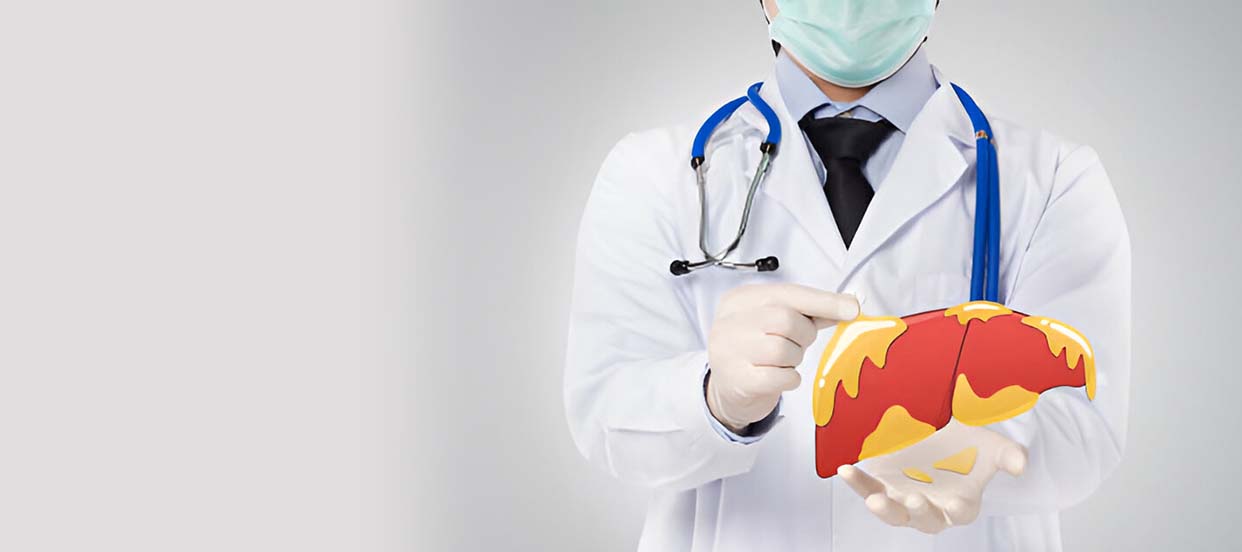
Fatty liver disease is a widespread health condition that occurs when excessive fat accumulates in the liver. It tends to develop silently without obvious symptoms, but with time, it can cause more severe issues if not treated effectively. The best part is that with the proper lifestyle modifications, fatty liver disease can usually be prevented, controlled, and even reversed.
Fatty liver disease refers to fat accumulation in the liver cells. The liver does contain some fat normally, but when fat constitutes over 5%–10% of the weight of the liver, it's regarded as fatty liver. There are two primary types:
Fatty liver disease has a multitude of potential causes. The most popular among them include:
In other instances, individuals can develop fatty liver disease even when they are not obese, particularly if they have a poor diet or a history of liver disease in their families.
During the early phases, fatty liver disease doesn't always result in symptoms. That's one reason so many individuals aren't even aware that they have it. As time passes and the condition advances, however, a few symptoms will begin to surface, including:
If fatty liver becomes a more severe type known as non-alcoholic steatohepatitis (NASH), it can lead to inflammation and scarring of the liver, which can result in cirrhosis or liver failure in the long run.
Doctors generally diagnose fatty liver disease through blood tests, imaging scans (such as an ultrasound), or in some instances, a liver biopsy. Blood tests can detect whether the liver enzymes are elevated. Imaging scans can indicate how much fat is present in the liver.
Yes! In the majority of cases, especially in the early stages, fatty liver disease can be cured. The trick is to adopt healthy lifestyle changes and stick with them in the long term. The liver is a highly strong organ that is capable of curing itself if given a chance.
One of the most important actions to cure fatty liver disease is to adopt a healthy diet. Here are some simple tips:
The Mediterranean diet has been recommended in cases of fatty liver. A diet like this consists of high plant-food consumption, healthy fats, and lean proteins.
Weight loss is one of the most effective methods of lowering liver fat. Even a minimal amount of weight loss—about 5% to 10% of your body weight—can have a significant impact. Weight loss tends to decrease liver fat, reduce inflammation, and enhance overall liver function.
Try to lose weight slowly and incrementally. Crash diets or abrupt weight loss might even make liver problems worse. The best option is a healthy diet and exercise.
Exercise is one of the primary factors in managing and reversing fatty liver. You don't need to do something extreme. Simple activities like walking, swimming, cycling, or yoga can suffice. Try to exercise for at least 30 minutes on at least most days of the week.
Exercise burns fat, increases metabolism, and lowers blood sugar and cholesterol levels. Over time, regular exercise can make your liver reduce its fat size.
Along with diet and exercise, there are other lifestyle changes that can help with healthy livers:
There is no specific medication for fatty liver disease in most cases. Doctors usually recommend treating the condition by making lifestyle changes.
However, if fatty liver disease is accompanied by other conditions like diabetes, hypertension, or high cholesterol, medications for these conditions can help.
In severe cases, or if the disease has progressed to NASH or cirrhosis, your doctor may suggest further treatment or follow-up.
Natural remedies are also investigated by others to help the liver. Although these cannot take the place of physician recommendations, some are useful to help with liver health:
Always consult your physician before taking any supplements, particularly if you are on other medications.
Fatty liver disease management is a long-term process. It's not a matter of a quick fix—it's a matter of changing your ways and adhering to them. Some individuals might require assistance from a nutritionist or a fitness trainer to remain on track. Regular follow-ups with your physician are also necessary to track your progress.
The ideal cure for fatty liver disease is prevention. Here's how you can lower your risk:
These are not only good for your liver—they're good for your entire body and will help you live longer and healthier.
Fatty liver disease may sound scary, but in most cases, it is treatable and even reversible with some lifestyle changes. By being healthy, exercising regularly, and taking proper care of yourself, you give your liver a chance to heal and work as it should.
It's never too early to start making healthy changes. Whether you're looking to avoid fatty liver disease or live with an existing diagnosis, making small adjustments can lead to huge results in the long term. Listen to your body, learn, and don't be afraid to ask your doctor for help when you need it.